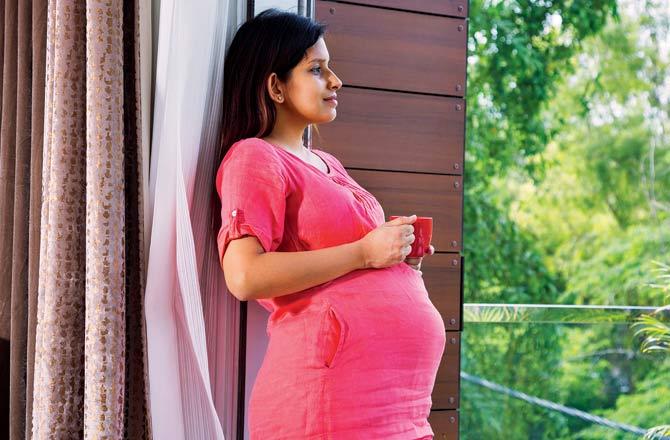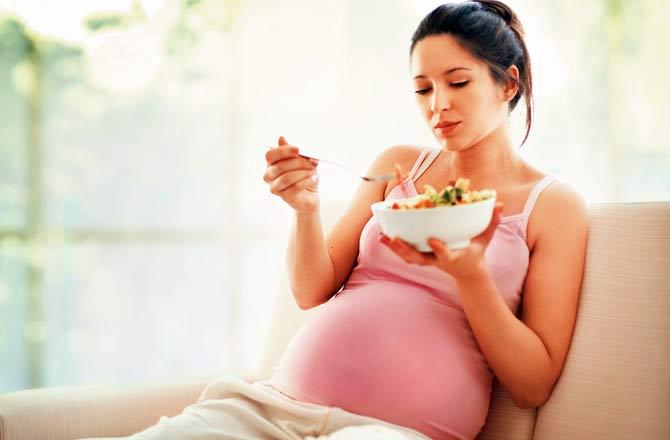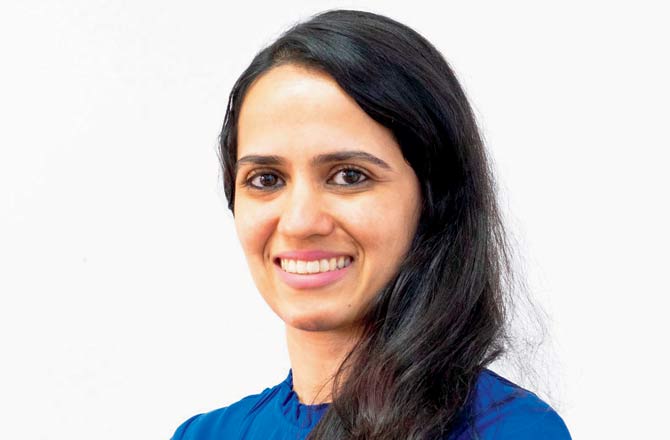The lockdown is turning out to be a stressful time for expectant mothers. Doctors and experts share tips on how pregnant women can navigate this period safely

For Aditi Shah*, a 32-year-old city-based IT professional who had been trying to conceive for four years, the lockdown finally brought good news. After starting in vitro fertilisation (IVF) treatment in January, she found out she was pregnant in the last week of March. While she was overjoyed, she couldn't stop herself from over-thinking: her child was going to be born in a world fighting a virus. "I've heard so many things about COVID-19. There are so many patients who are asymptomatic; what if I come across someone like this during check-up?" Shah says, echoing the fears of hundreds of expectant mothers who are trying to navigate pregnancy at a time when mobility is restricted, hospitals are a scary place, and no one can ascertain what lies ahead.
ADVERTISEMENT

Take time off to bond with the baby
Fear of infection
Dr Gandhali Deorukhkar Pillai, consultant obstetrics and gynaecologist at Wockhardt Hospital, Mumbai Central, says her phone has been ringing off the hook since the lockdown started as pregnant women are experiencing panic attacks. The common question that she has been fielding is: are expectant mothers at a higher risk of contracting the virus, and will it affect their babies? "In India, owing to strong immunity, we haven't seen pregnant women who are severely affected. Those affected are largely the ones in their eighth or ninth month of pregnancy. Pregnant women above the age of 35, or those who are obese [over 100 kg], and have pre-existing medical problems such as high blood pressure or pregnancy-induced diabetes are at a higher risk of contracting COVID-19 or other serious illnesses," she explains.

Stick to homemade food
Dr Sneha Sathe, a fertility consultant at Nova IVF Fertility Mumbai, says that since pregnancy is an immuno-compromised state, it is a common notion that pregnant women are more susceptible to the virus. "However, reports show that healthy pregnant women are only as vulnerable to the virus as the rest of us. Most pregnant women who have contracted COVID-19 have been asymptomatic, but those who are older or have other health ailments have shown more severe signs," she adds. Both doctors tell us that although there is not much data on babies contracting the virus through the mother, the incidence is low.

Couples can work out together
Don't avoid check-ups
Dr Deorukhkar Pillai points out that her patients have been losing sleep over booking hospitals for safe deliveries. "A lot of women had initially booked a desired hospital for their delivery, which may be shut now. So, they have to look for new hospitals based on our recommendations. Since mobility is a problem, they might not be able to look at the new place before the delivery. They may have to opt for higher-end hospitals. This can lead to anxiety," she elaborates. Women also have reservations over stepping out for check-ups. "Although consultations are done over video calls too, something like an ultrasonography has to be done physically. Routine check-ups should not be avoided as that may lead to other complications," advises Dr Sathe.

Dr Sneha Sathe
Keep an eye on diet
Both doctors agree that the safety protocols that apply to everyone else, also apply to pregnant women. Maintaining hand hygiene, strictly isolating oneself and wearing a mask if stepping out are basic rules they must follow. Although pregnant women are known to experience different kinds of cravings, Dr Deorukhkar Pillai says it's important to stick to homemade food right now. "It is essential to follow a well-balanced diet. Stick to the food pyramid and consume enough protein. Five servings of fruits, and five servings of vegetable are a must every day. If they don't follow this, they can fall prey to Coronavirus or any other illness associated with low immunity," she reveals, suggesting, "They can consume coolants like chhaas or lassi, apart from pre-natal multi-vitamins, calcium and
iron tablets."

Dr Gandhali Deorukhkar Pillai
Mind matters
Apart from the fear of contracting the virus, constant news updates, financial uncertainty, staying away from family, among other things, can lead to a lot of stress for pregnant women. Moreover, as they cannot step out, physical activity can become limited. Dr Kanupriya Rajeshwar, consultant, physiotherapist, Motherhood Hospital, Kharghar, suggests mothers practise breathing exercises, pranayam and meditation to de-stress themselves. "Couples can sit together, meditate, connect and bond with their baby. Visualise the baby's face, and try to create and feel the good vibes. Exercise is really important, so they can walk around the house or in the corridor, lobby or balcony. Climbing the stairs is also a good cardio workout," she says. During this time, lamaze or birthing classes have gone online, Dr Rajeshwar adds. "Before they begin their pre-natal workout, women should seek consent from their gynaecologist. Online lamaze classes are more important than ever now, as they help not only the mother, but the father or caretaker, too, in building confidence. They are guided on what steps have to be taken during the delivery, the symptoms of labour, and how to keep themselves and the mothers calm, etc," she says.

Dr Kanupriya Rajeshwar
But the most important thing now, Dr Deorukhkar Pillai asserts, is to tune out COVID-19 related news to avoid panic attacks. And this is exactly what Shah, who is now three months pregnant, is doing. "I'm focusing on my office work and reading a lot of motivational books. My family members have become my emotional support system, helping me sail through this time," she signs off.
* The woman's name was changed on request
Catch up on all the latest Mumbai news, crime news, current affairs, and a complete guide from food to things to do and events across Mumbai. Also download the new mid-day Android and iOS apps to get latest updates.
Mid-Day is now on Telegram. Click here to join our channel (@middayinfomedialtd) and stay updated with the latest news
 Subscribe today by clicking the link and stay updated with the latest news!" Click here!
Subscribe today by clicking the link and stay updated with the latest news!" Click here!






